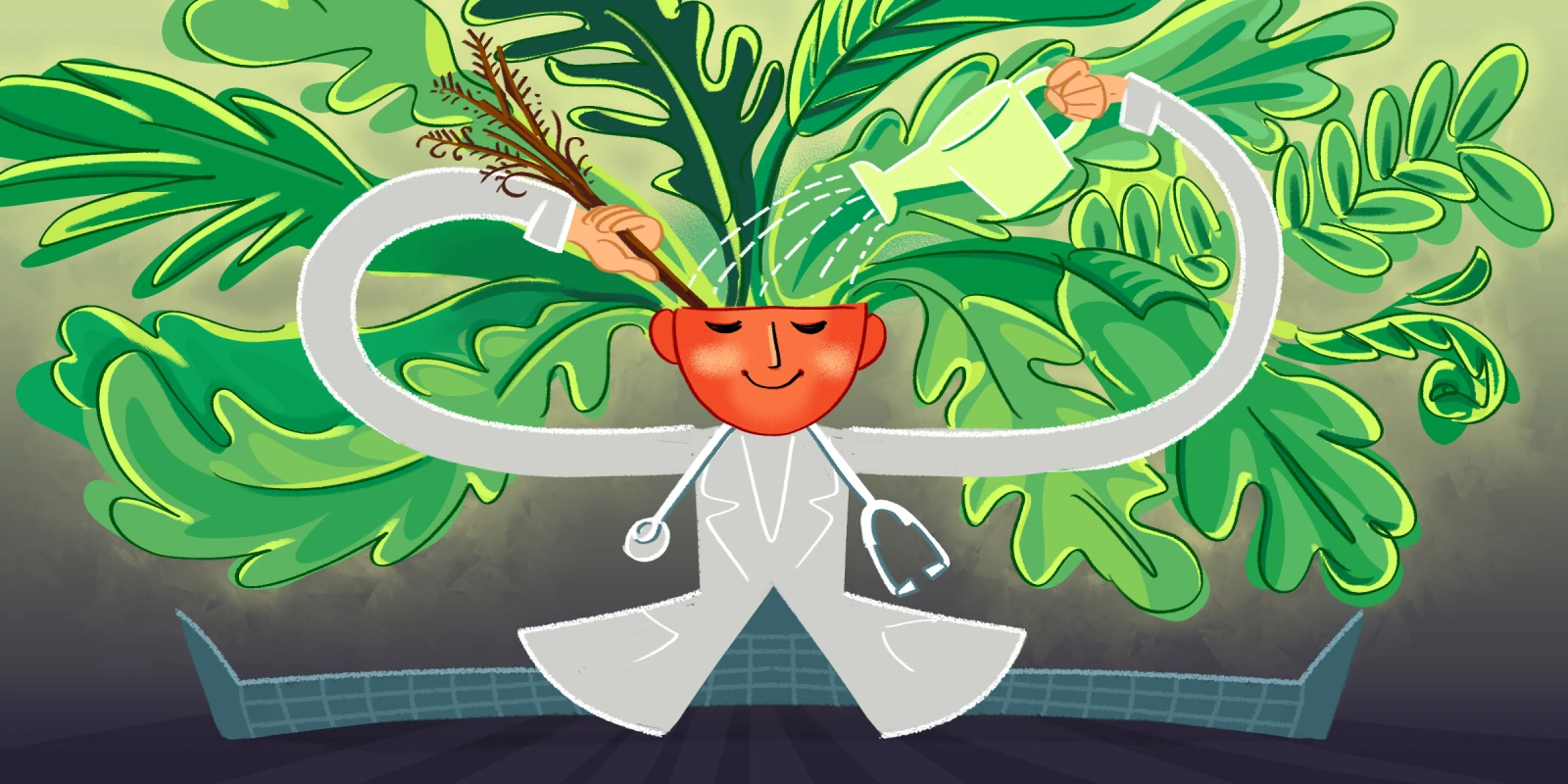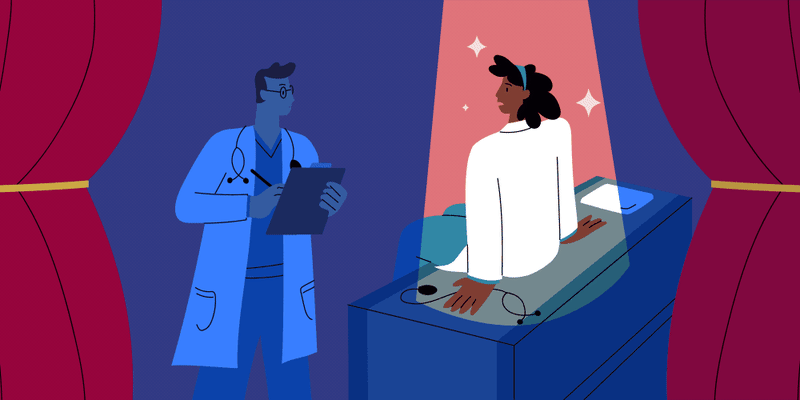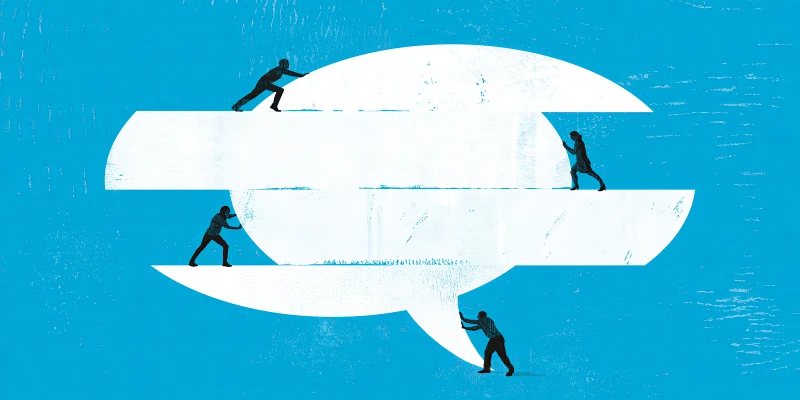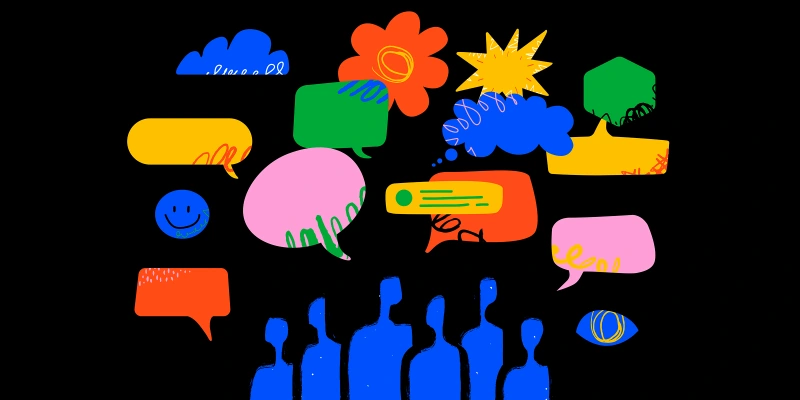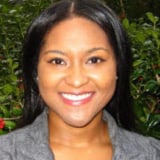
We’ve all heard, or even dispensed, the sage advice: you can’t control what happens to you, you can only control how you respond. For the past 15 years, that’s been my mantra.
In 2004, I underwent a stem cell transplant for myelodysplastic syndrome that was spewing blasts into my blood. The transplant went well, but I developed graft-versus-host disease (GVHD) and a litany of complications followed, either from the GVHD or the steroids used to treat it: diabetes, hypertensive encephalopathy, avascular necrosis of multiple joints, repeated prosthetic joint infections, bronchiolitis obliterans, glaucoma, and cataracts, to name just a few. This all caused me to make minor changes in my professional life – things like starting a side business as a medical writer – but I still persisted in trying to work full-time or part-time as a primary care pediatrician. With a weakened immune system, few jobs put me more at risk.
In 2016, after suffering a myocardial infarction with resultant cardiogenic shock, acute renal and liver failure, my children and wife gathered by my bedside one night to say goodbye. Lucky for me, I fooled them all and recovered. But it took that close a call to convince me finally to make some more-than-minor changes.
There’s a lot of angst on Doximity and elsewhere about professional burnout, and many are reconsidering their place in the medical profession. There seems to be an equal amount of backlash about those concerns, usually involving some variation of “we owe it to our patients to be there,” or “all that time and money invested by you and others in your education is wasted,” or “you knew what the profession demanded when you signed up for it.”
But my message is this: it’s never too late to think about your role in medicine (and indeed, in life), and make changes if you want. My journey was not precipitated by burnout but necessitated by practical, medical realities. But it might still be instructive for others. All I know is, it worked for me.
The most important thing is to identify what matters to you personally. Fans of the movie City Slickers may remember the scene where Jack Palance’s character, Curly, holds up his finger and says to Billy Crystal’s character that the secret to life is, “Just one thing. You stick to that, and everything else don’t mean shit.” When asked what that one thing is, Curly replies, “That’s what you gotta figure out.”
I figured out that my one thing was spending more time with family and friends. More importantly, I figured out that it wasn’t my career.
In today’s parlance, you need to find what brings you joy. For me, it was a combination of many things: spending time with the people that mean the most to me, avoiding tasks that don’t bring me joy (when possible), and doing worthwhile work that I feel makes the world a better place. That may seem overly simplistic, but that’s the point: boil it all down to the basics, and that’s what matters. It shouldn’t have taken a priest at my bedside and my family contemplating life without me to get there, but at least I figured it out.
So I make efforts to connect to friends and family whenever possible. Sometimes that means arranging a buddies trip to spring training (which I’ve never done before), and sometimes it just means having dinner with that couple that you always want to see more of. But when I make the effort, I’m still astounded by how meaningful and enjoyable those times are.
I learned to say “no” more often, too — to tasks or events or people that suck energy from me. Of course, this isn’t always possible, but when you’ve faced death, you realize what a precious commodity time is, and you don’t want to waste it any of it.
Second, find out what matters most to you professionally. Is your identity intrinsically wrapped up in being a doctor? And what does that mean — that you see patients? That you perform surgery? Are there other ways to use your degree, such as teaching, consulting, or advising in the business world? Trust me, I understand how much your self-perception is rooted in being a physician and, therefore, how much of your self-worth is tied to that, but there are many ways to contribute.
I was fortunate that my practice was large enough for me to become the de facto managing partner, handling a lot of the administrative tasks that others didn’t or couldn’t handle. I found I had a knack for these tasks and enjoyed making the practice run smoother.
I have since parlayed my managing role into a new role in the “supergroup” my practice joined. I work as a quality improvement specialist, while also leading the telemedicine initiative. So, I can still practice medicine without being exposed to infections.
Many of you may become nauseous at the thought of administrative duties, or cringe when you consider working outside clinical medicine, but there are many avenues available. While I miss the in-person connection with patients and their families, I still achieve some of that with the telemedicine visits, and I know I am helping the other physicians in my supergroup provide quality care.
I understand that finances play a huge role in any professional choices you make. And completely stepping away from medicine, as some may decide to do, is a daunting task, as most other careers won’t compensate you as well. But if you’re smart enough to be a doctor, you’re smart enough to do something else that will pay you fairly well and smart enough to figure out how to downsize or otherwise change your spending habits to accommodate your new lifestyle.
A third and final component is finding support for any changes you make. My wife has been incredibly understanding and patient with my professional journey, and my physician friends have been an invaluable source of encouragement. You may find other, more formal supports are necessary: online or in-person support groups, therapists, mentors, life-coaches, or others.
I never asked for my health issues. But I have done what I can to keep myself healthy and thriving and fulfilled. If you feel like you need to make some drastic changes, or even step away from medicine altogether, then don’t be afraid or ashamed to do so. It’s your life and your choice. Think hard about that one thing, and choose wisely.
A practicing pediatrician for over 26 years, Dr. Ruben J. Rucoba currently serves as Director of Medical Services for PediaTrust, a large pediatric "supergroup" in the Chicago area. He also established his own thriving medical writing and editing business in 2010. He has no conflicts of interest to declare. Dr. Rucoba is a 2019–2020 Doximity Fellow.
Illustration by April Brust
